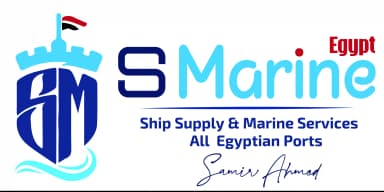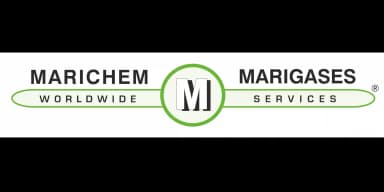Displaying 10 out of 143 suppliers
Chemicals
Supplier specification
Tank Cleaning Chemicals Suppliers
Tank cleaning chemicals are essential in maritime operations, especially for vessels that transport liquid cargo like fuel or crude oil. These chemicals are used to break down leftover residues, remove sludge, and prepare tanks for their next load. For ships like tankers, proper tank cleaning is not just routine - it’s critical to avoid contamination and ensure safe operation.
When tanks aren’t cleaned properly, it can lead to a range of problems: delays at port, rejection of the next cargo, or even safety hazards onboard. A simple rinse with water is rarely enough. You need a specialized chemical for tank cleaning that’s designed for the type of residue left behind. Different products exist for different needs - some clean out greasy buildup, others remove chemical films or stubborn stains.
Types of Tank Cleaning Chemicals
Different tank residues require different cleaning agents. The right chemical depends on what was previously stored, the tank material, and how clean it needs to be for the next cargo.
Here are some of the most common types of tank cleaning chemicals used on ships:
- Degreasers - These are heavy-duty cleaners designed to break down oily residues, sludge, and petroleum-based films. They’re often used after crude oil, fuel oil, or similar cargoes.
- Alkaline Cleaners - Useful for removing animal fats, vegetable oils, or light organic substances. These chemicals are less aggressive than degreasers but still effective in cleaning tanks that don’t contain heavy fuel remnants.
- Solvent Cleaners - Used for particularly stubborn residues like waxes or chemical coatings. Solvents are also effective when quick evaporation is needed and water-based cleaning isn’t practical.
- Emulsifiers - These help suspend oil and dirt particles in water, making it easier to rinse everything away. Emulsifiers are often used alongside other chemicals during multi-stage cleaning.
- Descalers - If a tank has hard scale or mineral deposits (especially after carrying certain chemicals), acidic descalers are used to dissolve and flush them out.
Each type of cleaning chemical is designed for a specific job. Sometimes, ship crews use more than one product in a step-by-step cleaning process - especially when switching from dirty cargoes to sensitive ones like pure chemicals or edible oils.
Selecting the Right Tank Cleaning Chemical for Your Needs
The wrong chemical can leave residues behind, damage tank surfaces, or fail to meet cleanliness standards. Shipowners, managers, and crew need to assess a few key factors before deciding what to use.
Here are some important points to consider:
- Type of Residue/Cargo: What was in the tank last - and what’s going in next - should guide the cleaning approach. For example, tanks emptied of heavy fuel oil or crude oil may need strong degreasers or solvent-based cleaners. If the previous cargo was vegetable oil or animal fat, an alkaline cleaner followed by a fresh water rinse is often enough. When preparing for sensitive cargo like high-purity chemicals, extra care is needed to pass wall-wash tests and avoid contamination.
- Tank Material and Coating: Some tanks are coated with epoxy or zinc-based linings, while others are stainless steel. Not every chemical is safe for every surface. Using the wrong product can lead to corrosion, coating breakdown, or even voided warranty coverage.
- Cleaning Time and Temperature: Certain chemicals require higher temperatures or longer circulation times to work properly. Crews working under time pressure may prefer quicker-acting products, but effectiveness shouldn’t be sacrificed for speed. Check product instructions and plan accordingly.
- Regulatory Compliance: In many cases, the cleaning procedure must meet port or cargo inspection standards. Some customers require a certificate or test report before loading. Make sure the chosen chemical is approved for the relevant use case and won’t leave residues that cause cargo rejection.
- Supplier Reputation: Not all vendors offer the same level of product quality or service. Working with trusted marine chemicals suppliers helps ensure the chemicals meet marine standards and perform reliably in real-world conditions. It's also easier to get documentation, safety data sheets, and technical support when you're dealing with experienced professionals.
With so many different formulations, cleaning needs, and tank cleaning chemicals suppliers on the market, finding the right solution isn’t always straightforward. This is where Records Marine gives you a clear advantage. We help you compare trusted options, connect with experienced tank cleaning chemicals distributors and manufacturers, and make confident decisions for your vessel’s operations.

Year Founded: 1992

Year Founded: 2018

Year Founded: 1987


